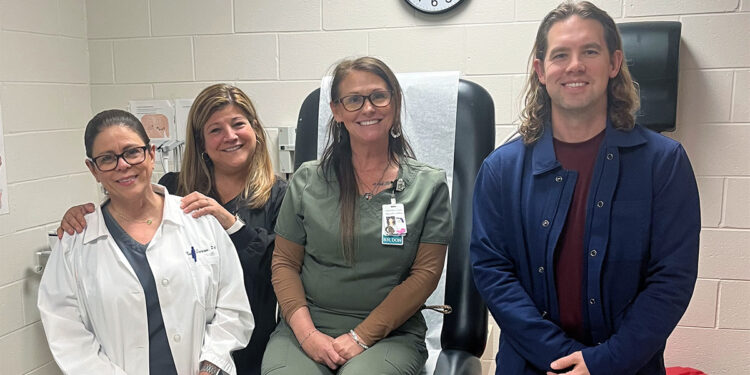For those counting down the days until their release from the Indian River County (IRC) Jail, the road ahead just got a little smoother.
Treasure Coast Community Health (TCCH) has secured a $1 million grant from the Health Resources and Services Administration (HRSA) to bolster healthcare support for incarcerated individuals nearing the end of their sentences. The goal? To bridge the often-overlooked gap between jail and community life, ensuring healthier outcomes for some of Indian River County’s most vulnerable residents.
For the past three years, Treasure Coast Community Health has been the backbone of medical care at the IRC Jail, offering nonstop services and detailed health check-ins for the roughly 5,800 people who come through annually, all under the oversight of the Indian River County Sheriff’s Office.
According to Heather Miranda, TCCH’s Executive Vice President, the hard part doesn’t stop when someone walks out—it’s just getting started.
“Our partnership with the IRC Jail has really improved the lives of those residing in the jail, so we’re ecstatic to receive this grant to further develop programs for incarcerated individuals,” said Miranda. “As we better prepare incarcerated persons to handle stressors and reduce recidivism, we directly improve the health of our community, and I’m honored to be given the opportunity to continue this work.”
That’s where this new grant comes in. With the $1 million infusion, TCCH plans to roll out a continuity of care program targeting inmates within 90 days of release. The program will follow them even after they’re back in the community, connecting them to high-quality primary care and specialized services.
One area of focus stands out: substance use disorder (SUD) support. According to TCCH, half of the jail’s population meets the criteria for SUD, putting them at serious risk of overdose—or worse—once they’re released.
Studies have long shown that the weeks following release are a precarious time for formerly incarcerated individuals, particularly those battling addiction. Without steady access to care, the chances of relapse, re-arrest, or even death climb sharply.
TCCH’s new initiative aims to rewrite that narrative by offering a lifeline of medical and emotional support during that critical transition.
The funding couldn’t come at a better time. Indian River County, like many places, grapples with stretched healthcare resources—specialists are hard to come by, and wait times can test anyone’s patience. For someone fresh out of jail, often with limited means and a complicated medical history, those barriers can feel insurmountable.
As the details of the continuity of care program take shape, locals are watching closely. For the thousands who cycle through the IRC Jail each year, this could be more than just a grant—it could be a second chance.








